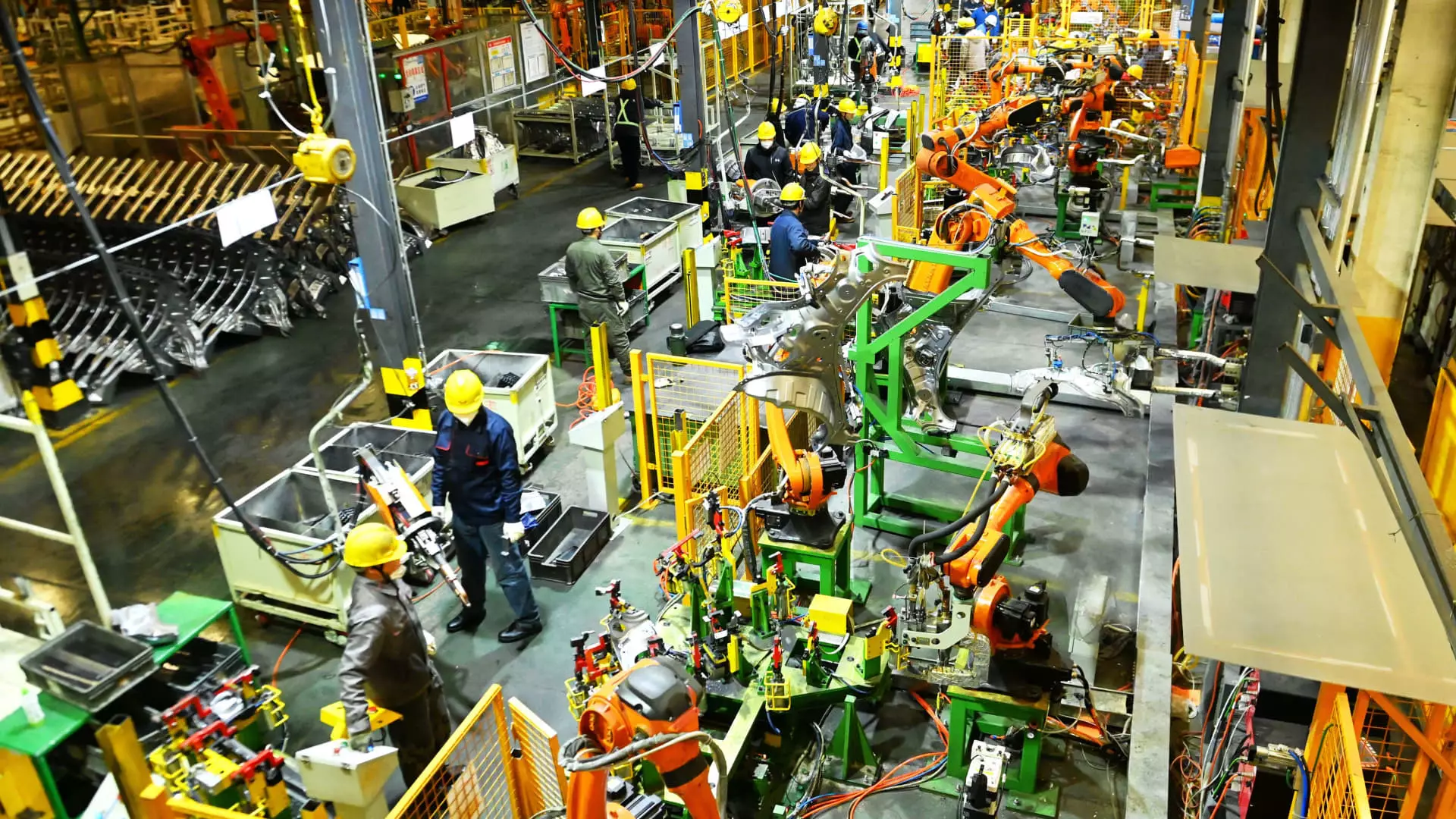In the intricate web of U.S. economic policy, President Donald Trump’s administration has been nothing if not unpredictable, especially in the automotive sector. The administration’s intention to potentially exempt automakers from tariffs is a decision deserving of scrutiny—it can hardly be taken at face value. According to reports, these tariff exemptions are purportedly linked to a broader strategy aimed at countering China’s influence and reducing the flow of fentanyl into the United States. But let’s be real: is this truly about public welfare, or are these actions just another layer of chaos from an administration that thrives on volatility?
The fact that Trump is contemplating exemptions for imported auto parts is indicative of a desperate retreat. After years of imposing numerous tariffs aimed at fostering a veneer of protectionism, the reality is that they’re proving more burdensome than beneficial for American manufacturers. As auto executives and policy groups intensify their lobbying efforts for relief from tariffs, it reflects an industry on the brink, grappling with rising costs that stymie innovation and production. The upcoming 25% tariffs on auto parts, set to take effect soon, could be the final straw that suffocates the already struggling manufacturing ecosystem.
The Stock Market’s Reaction: A False Start
On the surface, the stock market’s marginal uptick in response to Trump’s latest tariff considerations seems positive, yet it hardly tells the whole story. It can often be misleading when stock prices flutter upward due to temporary news. The reality remains grim for automakers. Rather than robust growth, what we see is a precarious market that is easily rattled by the whims of political maneuvering. The prospect of “de-stacking” tariffs may offer a glimmer of hope, but it’s a pathetically weak sparkle in the shadow of a looming crisis. If auto parts tariffs proceed as planned, manufacturers could face the perfect storm of overregulation and rising costs, further straining resources and agility.
If the situation remains unaddressed, this sector may well see investment stifled, foreign companies siphoning off market share, and most alarmingly, job losses multiplying. The automotive industry has already begun making policy adjustments to align with the shifting sands of protectionism and tariffs, a move that may seem prudent but is ultimately reactive rather than proactive. Clarity—something demanded by General Motors CEO Mary Barra—is not just preferred; it is essential for businesses to plan strategically, sustain growth, and make sound investment choices.
The Lobbying Cycle and Its Implications
It’s curious, yet all too predictable, that a coalition of six major U.S. automotive policy groups has emerged to plead for relief from tariffs. Their collective efforts to sway the administration signal a noteworthy urgency within these organizations. The stubborn insistence on imposing heavy tariffs without regard for the broader economic repercussions appears misguided, if not outright reckless. On the one hand, there’s an ever-present narrative of economic nationalistic statesmanship; on the other, a looming reality of potential collapse within the domestic auto market.
Their plea is more than just corporate whining; it is an alarm bell rung in unison by entities that truly understand the ramifications of erratic tariff policies. The notion that this concentration of lobbying advocates could sway the administration to relent on tariffs feels hopeful, but misplaced. Buyers in the market for vehicles are not just caught in an economic tug-of-war; they’re left worrying about escalating costs that could lead to fewer choices and rising prices.
The Cognitive Dissonance on Trade Policy
Trump’s tariff strategy, especially regarding Canada—implying that tariffs could rise even further—mirrors a troubling cognitive dissonance. If the objective is to “make our own cars,” as Trump asserts, isn’t this approach counterproductive? These heavy levies jeopardize precisely what the administration claims to want: a robustly competitive domestic auto industry capable of innovation and growth. In stark contrast, mounting tariffs merely serve as a blockade for potential progress.
The industry cannot afford a zero-sum game mentality. It’s not about shutting out American consumers from a global marketplace; it’s about leveraging it to bolster domestic production. If we truly desire a thriving auto sector in the U.S., policymakers must enable incentives rather than stifling regulations. As it stands, Trump’s random whims on tariff policies threaten to create a vacuum that decimates one of the nation’s critical industries, forcing American manufacturers into a corner with dwindling choices.
This isn’t mere conjecture; it’s a realistic portrayal of an industry teetering on the brink due to poorly conceived, reactionary policies. The administration must refocus its trade policies—prioritizing clarity and consistency to genuinely uplift, rather than undermine, the future of automotive manufacturing in America.

